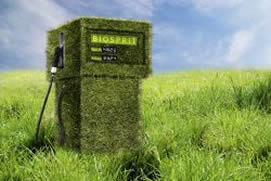The Spanish biotechnology sector is proving it can grow, now boasting 40 companies working on the development of biofuels and other processes, double the number that existed in 2011.
Asebio (Asociación Española de Bioempresas) has presented the portfolio of products, technologies, processes and activities in the industrial sector that are being developed in Spain. These include fuels, plastics, other renewable products and substitutes for petroleum derivatives. This program covers 271 projects, which is also about double the number that was under development in 2011.
In this sector there are products and processes that originate as waste such as polymerases, microalgae, enzymes, polymers, plastics, catalysts, detergents, cosmetics, sensors, dissolvents, the production of recombinant proteins and technologies for fermentation.
For example, the Spanish company Abengoa already has biofuel plants in both Spain and the US, and even a pilot refinery to convert municipal solid waste into biofuels. The idea in this case is to convert garbage into a source of energy, thereby helping to solve a problem faced by every city around the world.
Asebio is participating along with a number of companies in projects in the field of industrial biotechnology. One of these, ValorPlus, aims to develop methods to convert refinery sub-products into new, high value-added biological products.
The EcoBioFor project is searching for new environmentally friendly dissolvents, using crop waste as the raw material. These would act as substitutes for products currently used for painting and coatings that are derived from petrochemicals. The company Inkemia is involved in this effort.
Finally, the Seacolors project seeks to develop natural dyes from algae, in order to use them in the textile industry to replace synthetic dyes.
